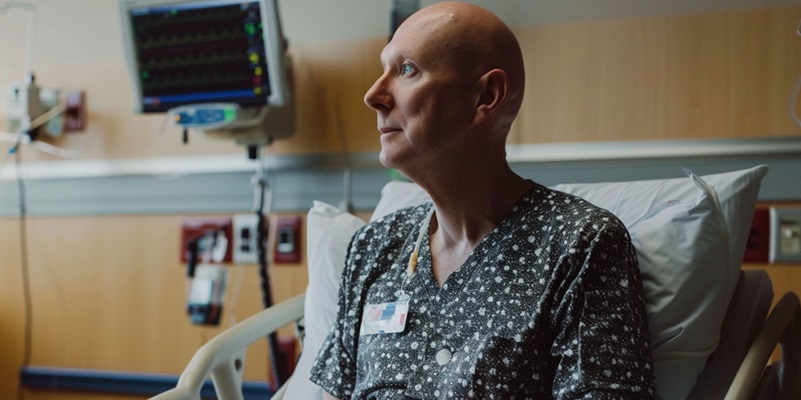Cancer is not only a relentless disease that attacks the body, but it also poses challenges in the realm of social norms, particularly in professional environments. The decision to disclose a cancer diagnosis at work is fraught with complexity. Concerns regarding privacy and potential discrimination coalesce into a silence that envelops many who struggle with cancer, a silence that can perpetuate stigma and isolation within the workplace. The statistics regarding nondisclosure expose a compelling issue that prompts a reevaluation of workplace cultures and practices.
The Silence Among Workers with Cancer
Cancer and Confidentiality: The Trend of Non-Disclosure
The choice to keep one’s cancer diagnosis private in a professional setting is an evident trend, with a notable 28% of working individuals choosing this path according to research by Reframe Cancer. This choice speaks volumes about the current state of corporate culture. It suggests that for many, the workplace is still not seen as an accommodating or empathetic environment for those grappling with serious health issues. The hesitancy to share such personal matters reveals a broader cultural issue where vulnerability is not easily exposed or embraced among professional peers.
The statistics from Reframe Cancer’s survey reveal a stark reality: Nearly a third of individuals battling cancer while working feel compelled to navigate this journey privately. Such reticence is indicative of an underlying concern for job security, fear of being perceived as less capable, or simply a personal preference for privacy. Undoubtedly, however, this silence leaves employees to cope with their illness in potentially unsupportive work environments, which can lead to increased emotional and physical strain.
Gender Disparity and Age Influence in Disclosure
A distinct gender disparity surfaces when we delve into who is staying quiet about their cancer diagnosis; the study found that 49% of male workers are inclined to keep their condition to themselves. This tendency reflects societal norms that often dictate that men should not show vulnerability, translating into a habit of silence in the workplace. Conversely, it brings to light a pressing need for workplaces to challenge and change these norms, encouraging openness and support regardless of gender.
The influence of age is also significant when it comes to disclosure. Those over the age of 55 are especially reluctant to share their diagnosis, with a whopping 60% keeping their condition a secret from colleagues. This may be rooted in fears of ageism or concerns about nearing the end of one’s career. Whatever the reason, it emphasizes an age-related dimension to the stigma of illness at work, suggesting older employees might associate openness with instability or unreliability.
The Workplace Culture of Avoidance
The Consequences of Keeping Cancer Secret
Remaining silent about a cancer diagnosis carries a weighty toll. Forty-five percent of the workers in the survey confessed to feeling seen as a burden due to their illness—and this perception can have profound implications. It can lead to unnecessary stress and complications in balancing treatment with professional duties. Moreover, it fosters a sense of isolation that can gnaw at an individual’s mental and emotional wellbeing, potentially extending the period and frequency of sick leaves.
Isolation becomes a significant consequence for those who choose to manage their cancer quietly, with 35% reporting feelings of loneliness in their professional lives. It’s an isolation that’s compounded by both a lack of disclosure and the surrounding culture’s unpreparedness to address such sensitive subjects. This emotional solitude can exacerbate an already challenging situation, suggesting a need for mechanisms to combat this isolation and bring about a more inclusive experience for those with cancer in the workforce.
Colleague Reactions and Support Deficiency
It’s not just the individuals with cancer who maintain the silence; according to the study, 16% of employees have experienced others actively avoiding the topic. This avoidance can be rooted in discomfort or fear of saying the wrong thing, but it nonetheless contributes to the sense of isolation. Aside from the immediate social implications, it indicates a broader lack of preparedness and support in the workplace for those struggling with such diagnoses.
The insufficient support from employers is glaring, with 77% of workers feeling that their needs during illness are not adequately met. This disparity points to a crucial area where employers can improve—by creating a network of support that encompasses more than just medical leave or flexible work hours. Offering counseling services, accommodating workloads, and proactive communication can bridge the gap between the clinical aspects of cancer treatment and the much-needed emotional and social support in the workplace.
The Role of Employers in Supporting Employees with Cancer
Fostering a Supportive Environment
Cultivating a supportive work environment is critical for accommodating employees with cancer. This includes nurturing a culture where employees are comfortable discussing their health challenges without fear of reprisal or marginalization. Employers play a crucial role in spearheading initiatives that foster empathy and understanding, ensuring that those undergoing treatment do not feel out of place or undervalued because of their health circumstances.
Enabling discussions about cancer and eliminating stigma require a concerted effort. By implementing training sessions that educate and sensitize the workforce about cancer, employers can dismantle misconceptions and encourage compassion. The establishment of support groups within the company and partnerships with cancer support organizations can also be instrumental in creating a nurturing environment for affected workers.
Encouraging Open Dialogue and Early Support
Encouraging open dialogue and early support can mitigate many of the challenges faced by employees with cancer. By fostering a culture of understanding and flexibility, employers can ensure that those dealing with this illness are supported both professionally and personally throughout their journey. Open communication can help to build a workplace that is not only knowledgeable about the complexities of cancer but is also compassionate and inclusive for every member of the team.

